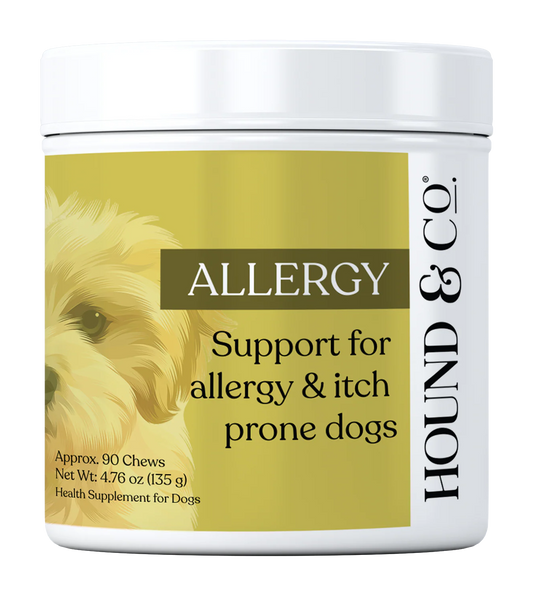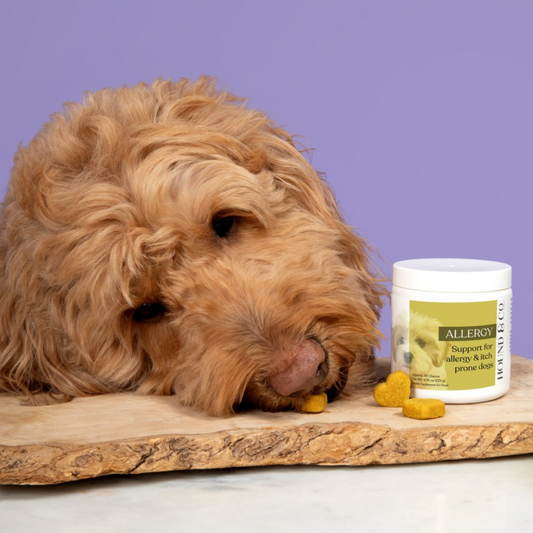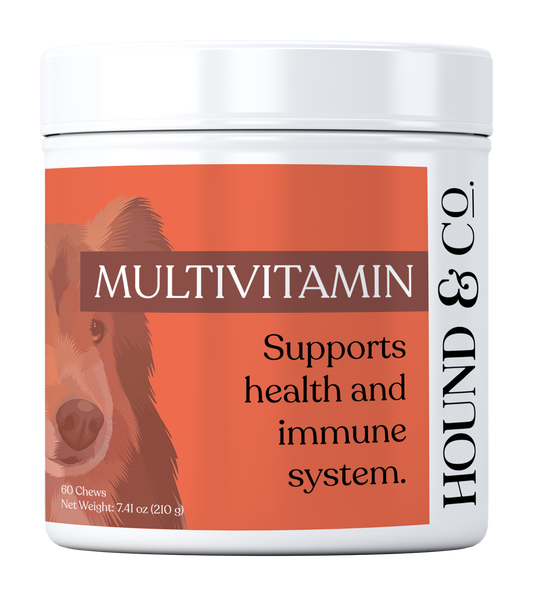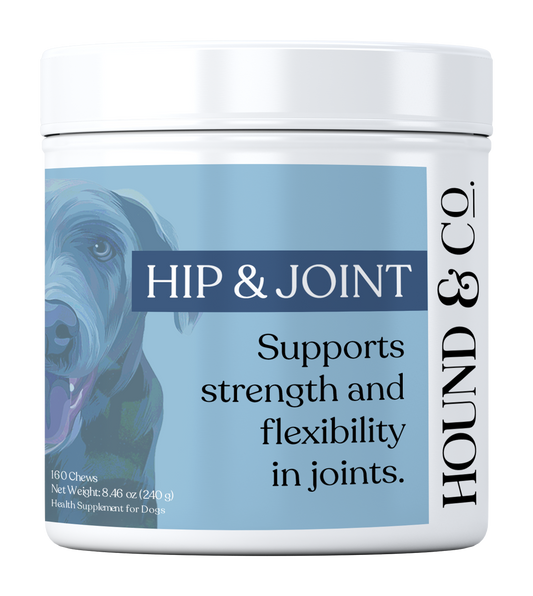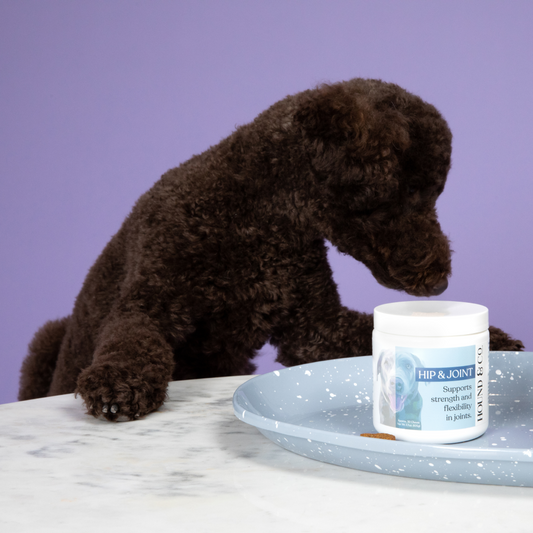Feeding for Relief: Crafting a Diet to Combat Your Dog's Allergies

Vet Reviewed by Dr. Jacob Klos, DVM

Just like humans, dogs can suffer from a variety of allergies that can significantly impact their quality of life. While environmental factors often play a role, one of the most influential elements in managing your dog's allergies is their diet. By carefully selecting what to feed and what to avoid, you can help alleviate your dog's allergic reactions and promote better overall health. In this article, we'll explore the importance of diet in managing dog allergies and provide guidance on what foods to include and exclude from your dog's diet.
Understanding Canine Food Allergies
Before diving into specific dietary recommendations, it's important to understand what food allergies are and how they affect dogs. Food allergies occur when a dog's immune system mistakenly identifies a particular food ingredient as harmful and mounts an immune response against it. This can lead to a range of symptoms, including:
- Itchy skin or ears
- Digestive issues such as vomiting or diarrhea
- Chronic ear infections
- Excessive licking or chewing of paws
- Red, inflamed skin
Identifying and managing food allergies can be challenging, but with the right approach, you can help your dog live a more comfortable and healthy life.
Foods to Feed
1. Novel Proteins
Novel proteins are sources of protein that your dog has not been exposed to before. Common protein sources such as chicken, beef, and lamb can sometimes trigger allergic reactions. Introducing novel proteins like venison, duck, or rabbit can reduce the risk of allergic responses. These proteins are less likely to cause immune system reactions, making them an excellent choice for dogs with food allergies.
2. Limited Ingredient Diets
A limited ingredient diet (LID) includes fewer ingredients, which makes it easier to identify and eliminate potential allergens. These diets typically contain a single protein source and a single carbohydrate source. By simplifying your dog's diet, you can more easily pinpoint which ingredients might be causing allergic reactions and reduce the risk of flare-ups.
3. Omega-3 Fatty Acids
Omega-3 fatty acids, found in fish oil and flaxseed oil, have powerful anti-inflammatory properties that can help soothe itchy skin and reduce inflammation caused by allergies. Including omega-3 fatty acids in your dog's diet can improve skin health and reduce allergic symptoms. You can add fish oil supplements to your dog's meals or choose commercial dog foods that are rich in omega-3s.
4. Hypoallergenic Dog Foods
Hypoallergenic dog foods are specially formulated to minimize the risk of allergic reactions. These foods often contain hydrolyzed proteins, which are broken down into smaller components that are less likely to trigger an immune response. Hypoallergenic diets can be an effective option for managing food allergies and are available through veterinary prescription or over-the-counter.
5. Fresh Fruits and Vegetables
Incorporating fresh fruits and vegetables into your dog's diet can provide essential vitamins, minerals, and antioxidants that support overall health and boost the immune system. Some safe options for dogs include blueberries, apples (without seeds), carrots, and green beans. These foods can help reduce inflammation and promote skin health.
Foods to Avoid
1. Common Allergens
Certain ingredients are more likely to cause allergic reactions in dogs. Common allergens include beef, chicken, dairy, wheat, soy, and corn. If your dog has a known allergy to any of these ingredients, it's crucial to avoid them entirely. Reading labels carefully and selecting foods that do not contain these common allergens can help manage your dog's allergies.
2. Artificial Additives
Artificial additives such as preservatives, colorings, and flavorings can exacerbate allergic reactions and should be avoided. Opt for dog foods that are free from artificial additives and contain natural, wholesome ingredients.
3. Grains
Some dogs are sensitive to grains, which can cause digestive issues and exacerbate allergies. While not all dogs are affected by grains, it may be worth trying a grain-free diet if your dog shows signs of food allergies. Grain-free diets typically use alternative carbohydrate sources like sweet potatoes or peas.
4. Dairy Products
Dairy is a common allergen for dogs and can lead to gastrointestinal upset and skin issues. If your dog is allergic to dairy, avoid feeding them cheese, milk, yogurt, and other dairy products. There are plenty of non-dairy treats and food options available that can serve as suitable alternatives.
5. Low-Quality Commercial Dog Foods
Low-quality commercial dog foods often contain fillers, by-products, and low-grade ingredients that can trigger allergies and compromise your dog's health. Investing in high-quality, reputable brands that use premium ingredients can make a significant difference in managing your dog's allergies and overall well-being.
Conclusion
Managing your dog's allergies through diet requires careful consideration and sometimes a bit of trial and error. By focusing on feeding novel proteins, limited ingredient diets, omega-3 fatty acids, hypoallergenic dog foods, and fresh fruits and vegetables, you can help reduce allergic reactions and improve your dog's quality of life. At the same time, avoiding common allergens, artificial additives, grains, dairy products, and low-quality commercial dog foods can prevent flare-ups and promote better health. Always consult with your veterinarian before making significant changes to your dog's diet to ensure the best outcomes for your furry friend.



